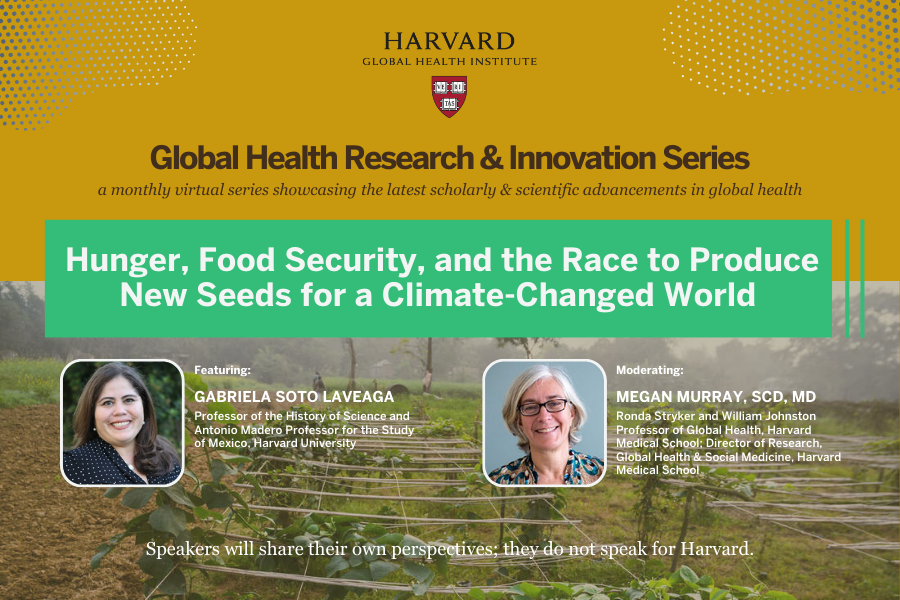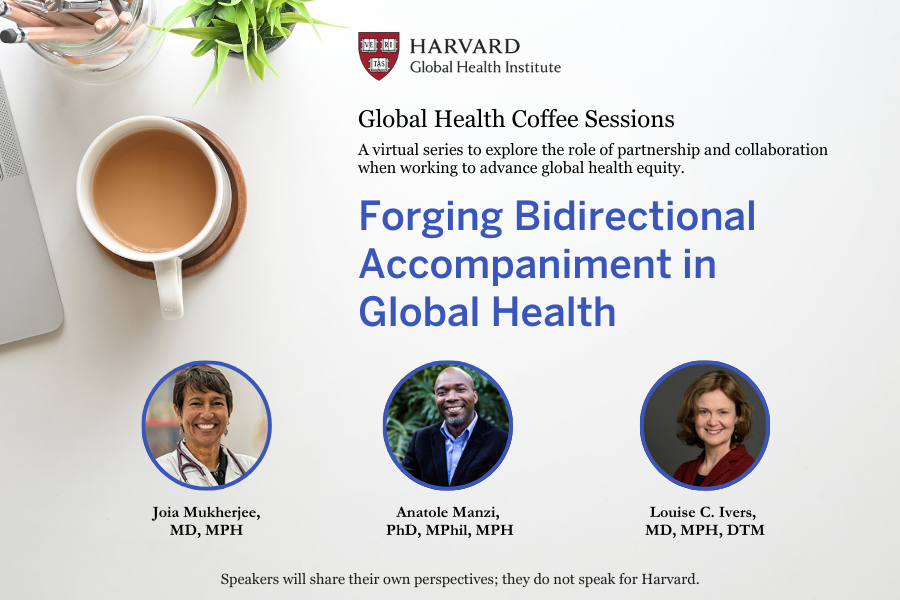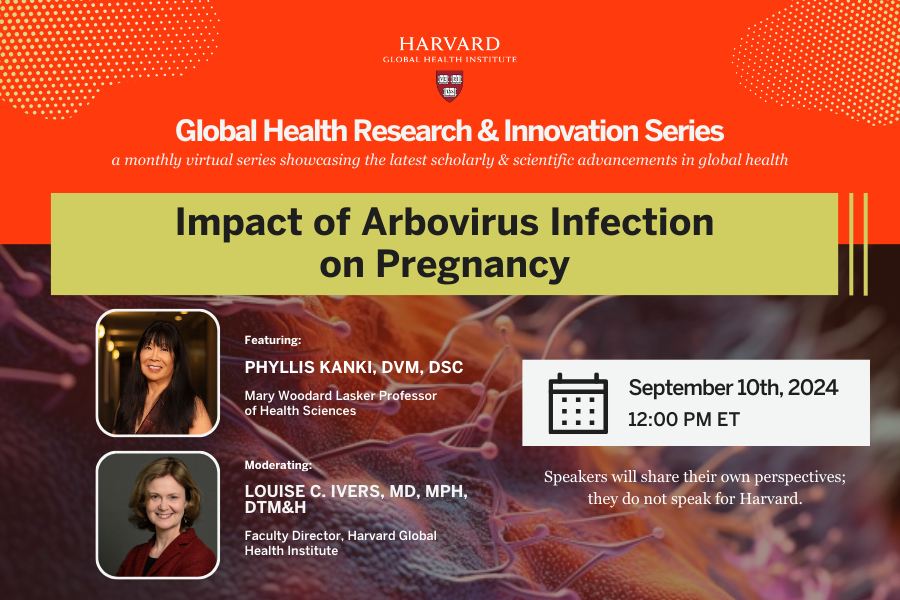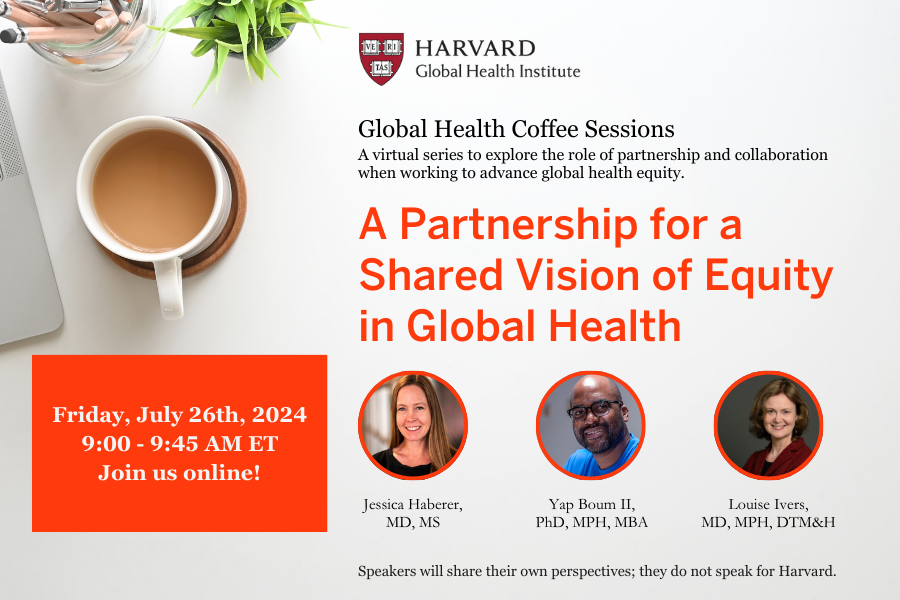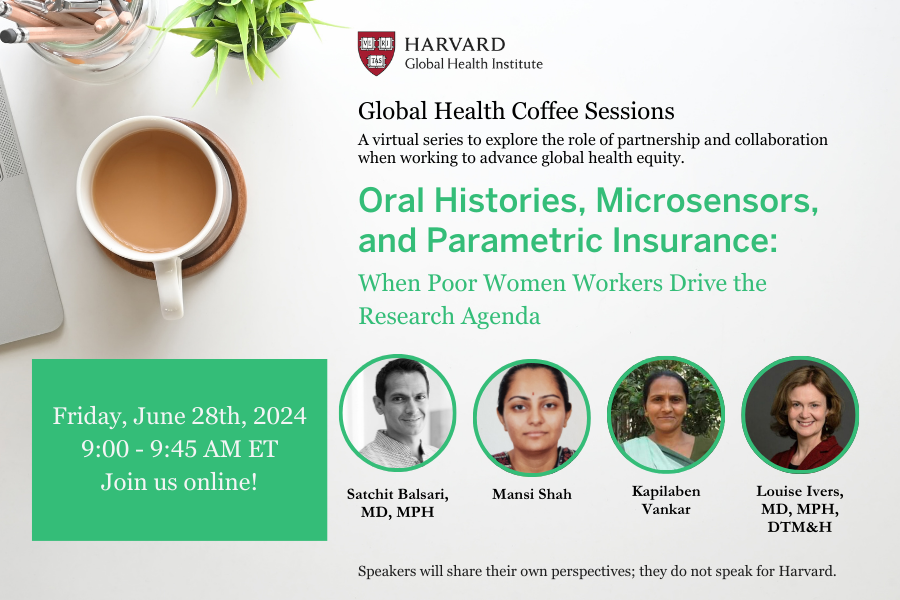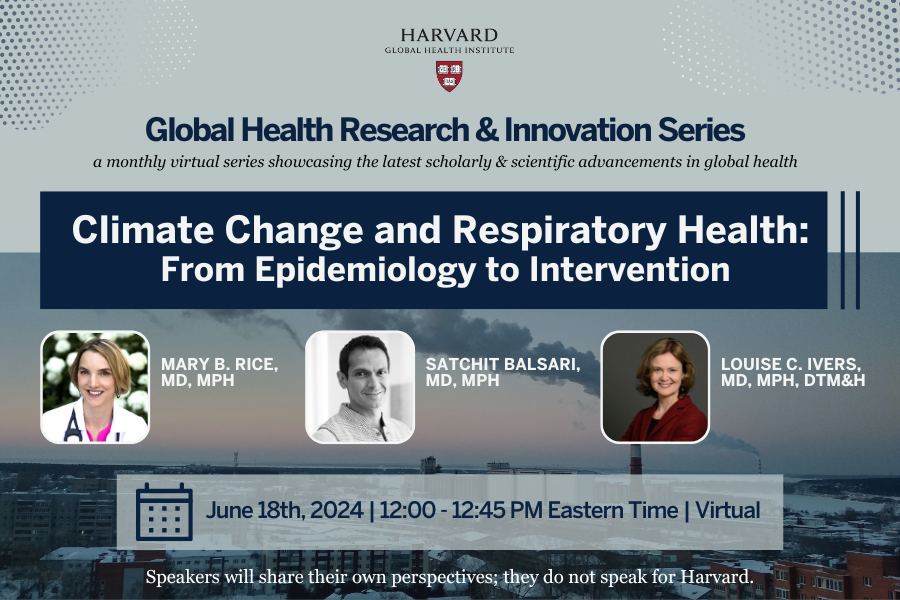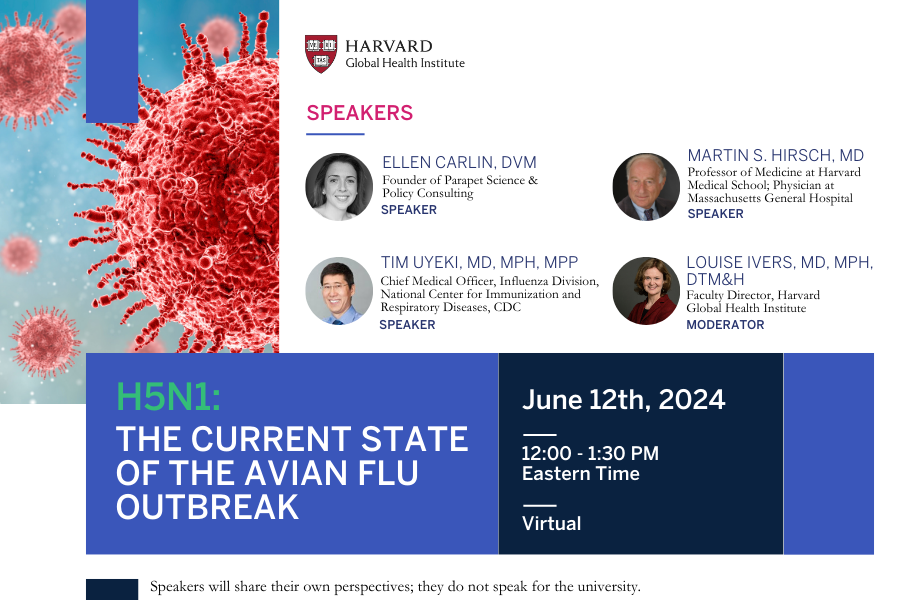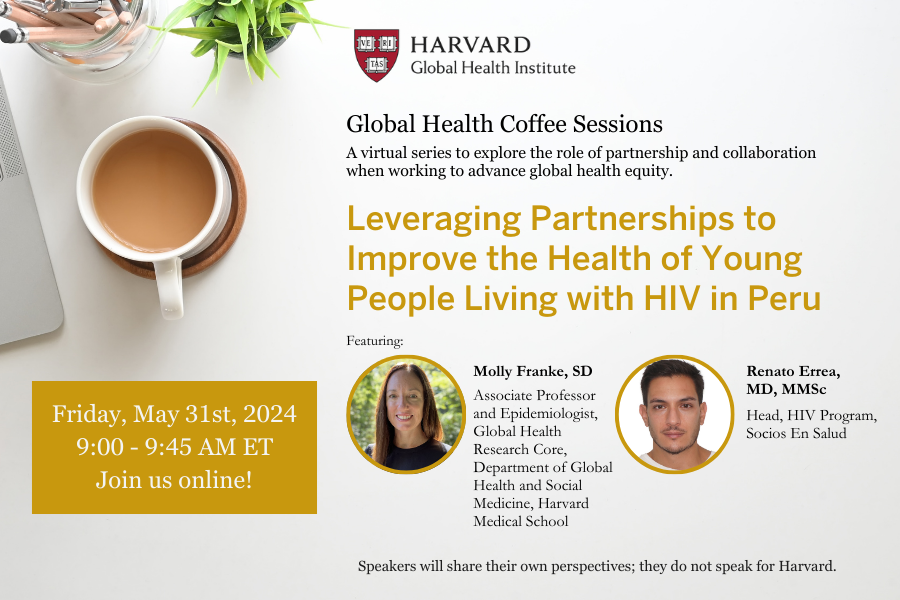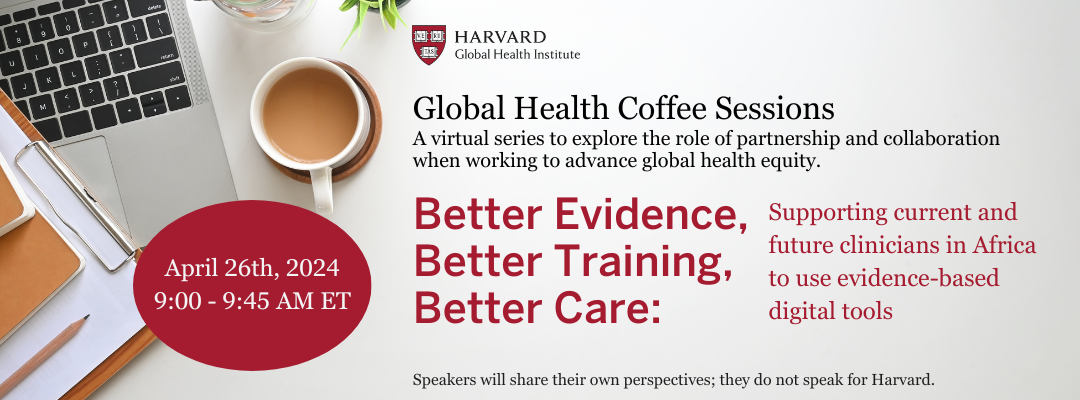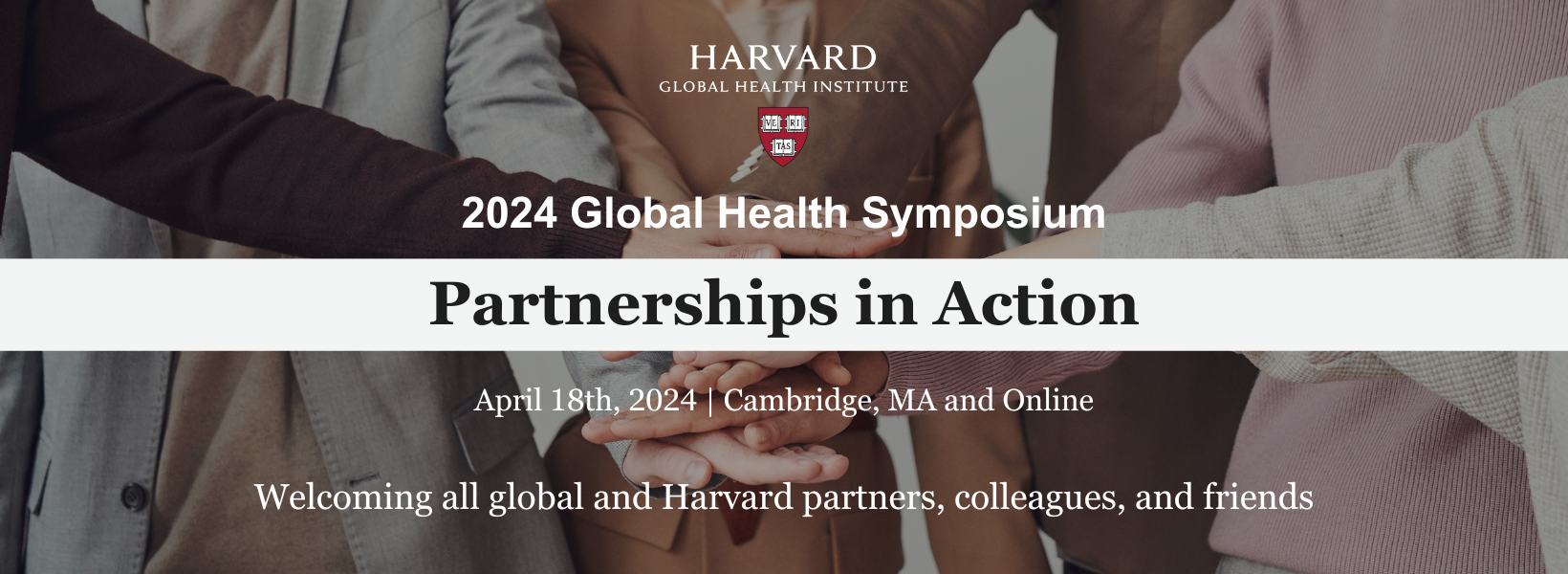LEARN MORE/REGISTER In this Global Health Research and Innovations Speaker Series event, Dr. Carole Diane Mitnick, ScD, Professor of Global Health and Social Medicine at Harvard Medical School will share her work on the endTB clinical trial. Dr. Louise C. Ivers, MD, MPH, DTM&H, Faculty Director at the Harvard Global Health Institute, will moderate the conversation. PLEASE CLICK HERE TO REGISTER
Event Description
For decades, poor treatment options and low-quality evidence plagued care for rifampin-resistant tuberculosis (RR-TB). The advent of new anti-TB drugs and enhanced funding now permit randomized controlled trials of shortened, all-oral treatment for resistant TB. Methods endTB is an international, open-label, Phase 3 non-inferiority, randomized, controlled clinical trial to compare five 9-month all-oral regimens including bedaquiline (B), delamanid (D), linezolid (L), levofloxacin (Lfx) or moxifloxacin (M), clofazimine (C) and pyrazinamide (Z), to the standard (control) for treatment of fluoroquinolone-susceptible RR-TB. Participants were randomized to 9BLMZ, 9BCLLfxZ, 9BDLLfxZ, 9DCLLfxZ, 9DCMZ and control using Bayesian response-adaptive randomization. The primary outcome was favorable outcome at week 73 defined by two negative sputum culture results or by favorable bacteriologic, clinical, and radiologic evolution. The non-inferiority margin was 12 percentage points. Results Of 754 randomized patients, 696 and 559 were included in the modified intention to treat (mITT) and per-protocol (PP) analyses, respectively. In mITT, the control had 80.7% favorable outcomes. Regimens 9BCLLfxZ [adjusted risk difference (aRD): 9.5% (95% confidence interval (CI), 0.4 to 18.6)], 9BLMZ [aRD: 8.8% (95%CI, -0.6 to 18.2)], and 9BDLLfxZ [3.9% (95%CI, -5.8 to 13.6)] were non-inferior in mITT and in PP. The proportion of participants experiencing grade 3 or higher adverse events was similar across the regimens. Grade 3 or higher hepatotoxicity occurred in 11.7% of the experimental regimens overall and in 7.1% of the control. Conclusions The endTB trial increases treatment options for RR-TB with three shortened, all-oral regimens that were non-inferior to a current well-performing standard of care. PLEASE CLICK HERE TO REGISTER
About the Speakers
Carole Diane Mitnick, ScD, Professor of Global Health and Social Medicine, Harvard Medical School Dr. Mitnick is Professor of Global Health & Social Medicine at Harvard Medical School (HMS) and Associate Epidemiologist in the Division of Global Health Equity at Brigham & Women’s Hospital. She has 25 years of experience in programmatic support, research (observational and experimental), policy, and advocacy related to increased access to high-quality, appropriate treatment for TB, especially for drug-resistant TB. Dr. Mitnick works in close collaboration with Partners In Health, specifically in Peru, Haiti, Kazakhstan, and Lesotho. In addition to teaching at HMS and giving lectures at other institutions, Dr. Mitnick mentors trainees in the HMS Master of Medical Science in Global Health Delivery Program. She is the co-PI of the endTB and endTB-Q trials, two multi-country, Phase III, randomized, controlled, clinical trials of all-oral, shortened, novel regimens for rifampin-resistant TB. She has also recently begun conducting research on post-TB lung disease. Louise C. Ivers, MD, MPH, DTM&H, Faculty Director, Harvard Global Health Institute; Executive Director, Massachusetts General Hospital Center for Global Health Dr. Louise C. Ivers, MD, MPH, DTM&H is the Faculty Director of the Harvard Global Health Institute and the Executive Director of the Massachusetts General Hospital (MGH) Center for Global Health. Dr. Ivers is also the David Bangsberg Endowed Chair in Global Health Equity at MGH and a Professor of Medicine and Professor of Global Health and Social Medicine at Harvard Medical School. Dr. Ivers has spent her career providing care to the rural and urban poor and engaging in patient-oriented investigation that offer solutions to barriers to healthcare. She works on the design, implementation, and evaluation of large-scale public health programs in resource-limited settings with the goal of achieving health equity. She has worked on healthcare delivery in India, Southeast Asia, and Africa. From 2003-2017, Dr. Ivers served in various leadership roles for Partners in Health, including Clinical Director, Chief of mission, and Director of strategic implementation. In addition to expanding access to healthcare for the poor, Dr. Ivers has contributed to published research articles on HIV/AIDS, food insecurity, and cholera treatment and prevention and is involved in global policy and advocacy.
About the Global Health Research and Innovation Speaker Series
The Harvard Global Health Institute’s Global Health Research and Innovation Speaker Series showcases the latest scholarly and scientific advancements in global health across Harvard and beyond, to make cutting-edge research accessible to a diverse global audience, and to spark innovative solutions in the pursuit of health equity and improved health outcomes worldwide. The public series takes place virtually on the second Tuesday of each month from 12:00 to 12:45 pm ET. Each session will include a presentation by a featured speaker showcasing their innovative research in global health, followed by a moderated Q&A. Speakers will share their own perspectives; they do not speak for the university.



